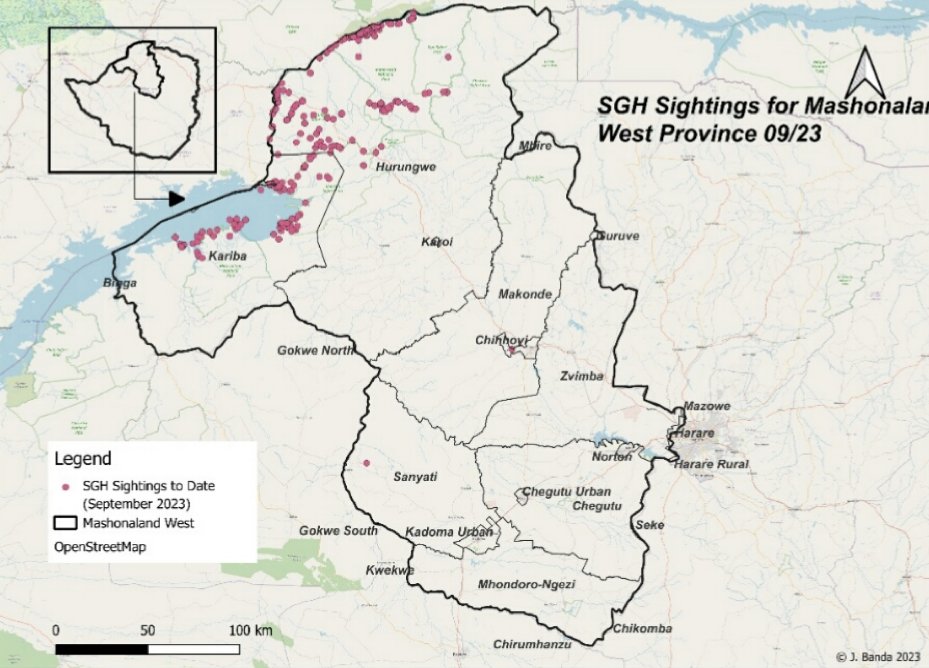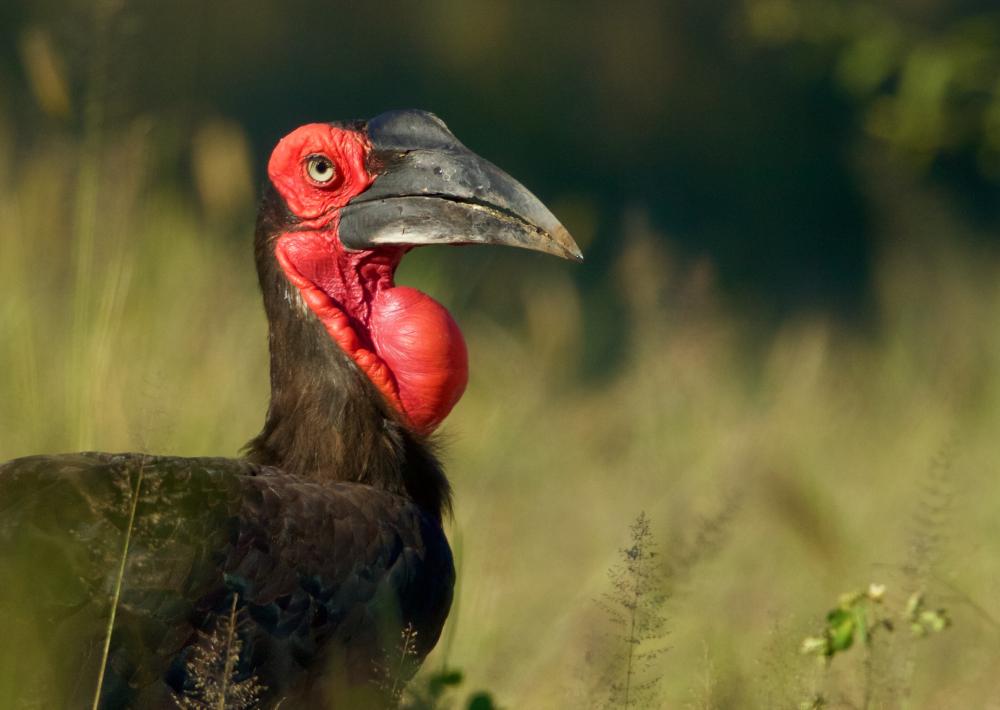CONSERVATION – PREVENTING EXTINCTION PROGRAMME
Southern Ground-hornbill
This charismatic species is both culturally and ecologically important. They are hailed across their sub-Saharan range as the thunder birds or rain birds. They are also a valuable flagship species for the savannah biome as they are easily recognizable, and with such large spatial requirements, any successful conservation action in even one of their expansive territories benefits all the other savannah and grassland species, including threatened species such as vultures, wild dog and cheetah.
At present, Southern Ground-hornbills are considered internationally as “Vulnerable” by the IUCN throughout their sub-equatorial range in Africa. In Zimbabwe the population status is unknown and is likely to be “Endangered” – in South Africa and Namibia they have been classified as “Endangered”, with their numbers outside of formally protected areas still declining.
The reasons for their decline are predominantly loss of habitat to bush-encroachment and development, overgrazing, large-scale monoculture, loss of large nesting trees, besides secondary poisoning, lead toxicosis from spent lead ammunition and electrocution on transformer boxes.
We are working on:
- Establishing the population status of Zimbabwe through (WhatsApp groups).
- Continuing the breeding and population monitoring in the Matopos.
- Coordination of a nationwide awareness campaign to educate the general public to the threats facing the thunder birds.
- A Custodianship programme that supports land-owners, managers and community leaders in management that will ensure sustainability of their locally resident ground-hornbill families.
- An enhanced conservation education campaign, with special focus of belief-based
medicine and deforestation. - Ultimately, to see co-existence with people, and population persistence, then growth. To promote avi-tourism and guiding etiquette for custodians.

SGH Sightings for Mashonaland West Provunce 09/23

